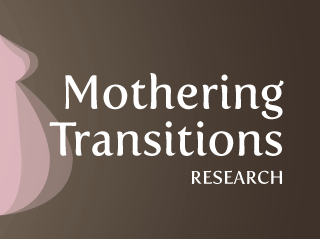The Childbearing Health and Related Service Needs of Newcomers (CHARSNN)
Introduction: Women in Canada with recent refugee-like histories (‘refugees’ and many ‘asylum-seekers’) may have significant harmful childbearing health outcomes and unmet health and social care needs. The most vulnerable of these are likely to be women: who have left their countries by force (e.g., war, rape or abuse histories), are separated from their families, have limited knowledge of the host country languages, and are visible minorities. Women seeking asylum face additional stresses related to their unknown future status and are marginalized with regards to access to provincial health care systems. Childbearing may add an additional burden, placing women in a particularly disadvantaged position. The prevalence and severity of health issues in this population is not known nor is the extent of response from social service and health care systems (including variation in provincial service delivery). Health Canada has noted the need for research both on refugee women and on the effects of the health care reform on high-risk immigrant groups. Reduced postpartum stays combined with steady numbers of refugees and asylum-seekers to Canada suggests the need for ensuring that care requirements of this marginalized population are being met. Systems must be responsive to the needs of the Canadian childbearing population as a whole within a context of finite resources. Understanding the magnitude of health and social concerns of newcomers requires data from a representative sample of childbearing refugee and asylum-seeking women resettling in Canada to permit comparisons to be made with non-refugee immigrant and Canadian-born women.
Research Questions
- Are the harmful health events experienced postpartum by asylum-seeking women and their infants, addressed less often (compared to refugees, non-refugee immigrants, and Canadian-born women) by the Canadian health care system as delivered in each of the three major receiving cities for newcomers?
- Do refugee or asylum-seeking women and their infants, experience a greater number of harmful health events during pregnancy, at birth, and during the postpartum period than non-refugee immigrant or Canadian-born women?
Design: Four year multi-site prospective (pregnancy to 4 months postpartum) cohort study
Sampling procedures and participants: 1800 women [150 in each of 4 groups (refugees, asylum-seekers, non-refugee immigrants, and Canadian-born) in each city] were recruited from 1 of 15 postpartum hospital units across the 3 largest receiving cities for newcomers to Canada – Montreal, Toronto, and Vancouver – using recruitment procedures previously found to be successful.
Instruments and measurement: Health data from the index pregnancy, labor, and birth was obtained from medical records; study inclusion criteria, demographic and health information, and breastfeeding plans were obtained by interviewer-assisted questionnaires; breastfeeding frequency, infant weight gain, health and social concerns, postpartum depression, social support, services use, migration history, and discrimination were assessed during a week 2 home visit by a nurse. Health risk assessment, breastfeeding duration, post-traumatic stress disorder (PTSD), anxiety, depression, abuse, and services use were measured at a month 4 postpartum home visit by a nurse able to provide immediate care related to general health and other issues potentially arising from PTSD and abuse questions. Data were obtained using questionnaires previously validated in 13 languages and several ethno-cultural groups. Data from nurses’ records of care and maternal reports of services received (without indicators of group status) were independently reviewed by a nurse expert (blinded to the research questions) who categorized recorded concerns as ‘un-addressed’ or ‘addressed’. In cases where categorization was difficult for this expert alone, an expert panel made the decision.
Relevance: Given that: 1-eligibility requirements for health services differ by immigration status 2- there may be variations in service delivery by province and 3-there are a large number of asylum-seekers and refugees arriving in Canada, knowledge of whether the postpartum needs of these women as identified by professionals are being addressed will inform both immigration and health policy makers as well as providers of services.
